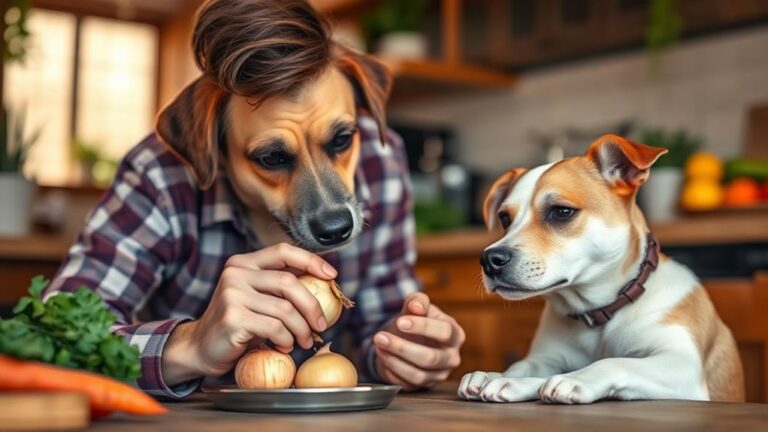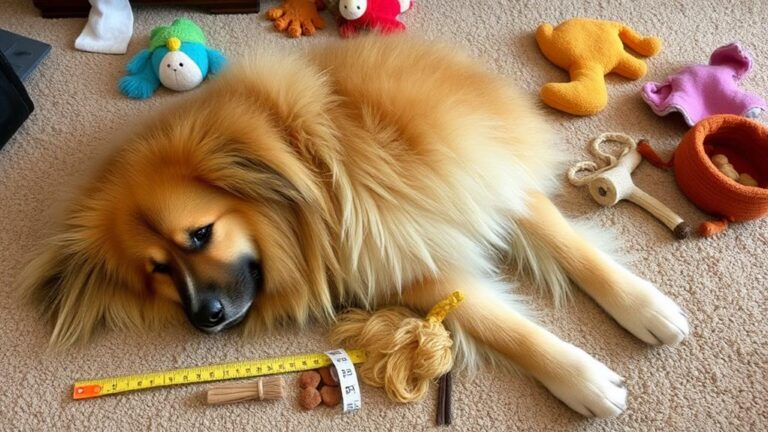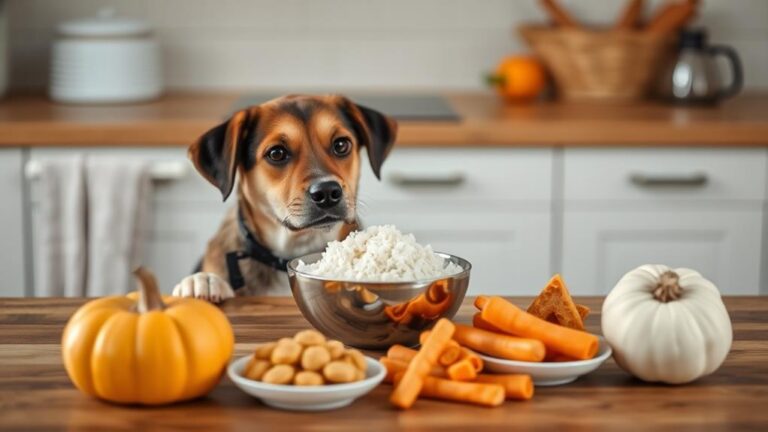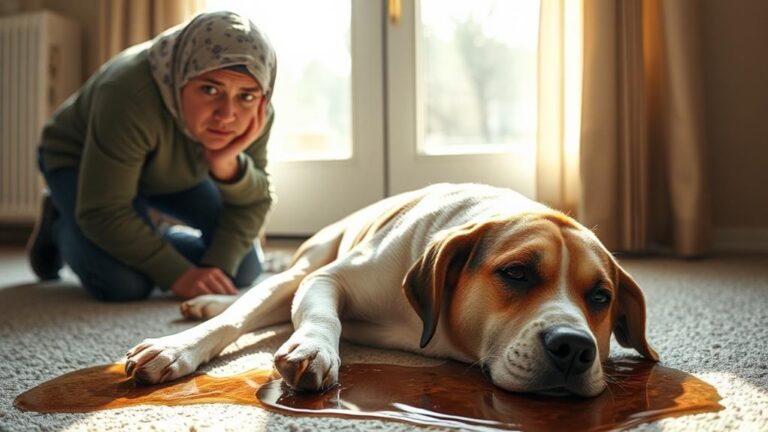Onions are common in many kitchens, but they pose a risk to dogs. Even a small amount can lead to serious health issues. Onions contain compounds that can damage a dog's red blood cells. This can result in symptoms like vomiting and diarrhea. However, the level of toxicity can vary from one dog to another. Some may react strongly to even a tiny bit. Understanding the risks associated with onions is essential for dog owners. What happens if your dog eats some? The implications could be more serious than you think.
Understanding Onion Toxicity
Onions are a common food for humans, but they are very dangerous for dogs. Dogs should never eat onions. Onions have special substances that can make dogs sick. If a dog eats onions, it can cause problems in their body. Some signs that a dog might be sick from onions are vomiting and diarrhea. They might also have a tummy ache.
One of the worst problems that can happen is called hemolytic anemia. This is when a dog's red blood cells get damaged. Red blood cells are important because they carry oxygen in the body. When a dog has this condition, they can feel very weak and tired.
The tricky part is that the signs of being sick from onions might not show up right away. Sometimes, dogs can feel fine for days before they start to show symptoms. This can make it hard for pet owners to know if their dog is ill.
In really serious cases, some dogs might need a blood transfusion to help them get better. That's why it is super important for dog owners to understand the danger of onions.
Always keep onions and onion products far away from pets. Keeping them safe is the best way to ensure they stay healthy and happy.
Toxic Amounts for Dogs
Onions are dangerous for dogs, even in small amounts. Just 0.5% of a dog's body weight in onions can make them sick. For example, if a dog weighs 50 pounds, eating even a little bit of onion can hurt them. This means that even tiny bites of onion can be a risk.
It's also important to know that if a dog eats small amounts of onion over time, it can lead to problems too. Every dog is different. Some dogs may be more sensitive to onions than others. This means that while one dog might feel okay after eating a little onion, another dog could get very sick.
To keep your dog safe, it is best to never give them onions in any form. Whether the onions are raw, cooked, or even in a dish, they can still be harmful. If you're making food for yourself, be careful not to let your dog sneak a bite.
The best way to protect your pet is to avoid onions completely. Always check ingredients if you are feeding your dog human food. Early prevention is key to keeping your dog healthy and happy.
Recovery Process After Consumption
If your dog eats onions, you need to act quickly! First, take your dog to the veterinarian right away. The vet is the best person to help your dog. They will look at how much onion your dog ate and decide what to do next. Eating a little onion might not cause serious problems, but eating a lot can be very harmful.
When you get to the vet, tell them everything about the onion. This includes what type it was and how much your dog ate. It's also important to watch your dog for signs of being sick. Watch for things like vomiting, tiredness, or not wanting to play. These could be signs that your dog is not feeling well.
The vet may give your dog special care and watch them closely. Sometimes, dogs need support to help them get better. After you leave the vet, make sure to follow their instructions for taking care of your dog at home. This could include giving medicine or watching for symptoms.
To keep your dog safe in the future, always keep onions and foods that have onions away from them. Being careful can help prevent this from happening again.
Risks of Cooked Onions
Cooked onions can be very dangerous for dogs, just like raw onions. Both types of onions have toxic compounds that can make dogs sick. One harmful substance found in onions is called thiosulfate. Even when onions are cooked, they still have this dangerous chemical. Eating onions can cause serious problems for dogs, including a condition called anemia, which means they do not have enough red blood cells.
Onion rings are especially risky for dogs because they are fried. Frying onions can make the toxins even stronger. Plus, fried foods can lead to other health issues in dogs, such as pancreatitis, which is an inflammation of the pancreas and can be very painful.
It is important to keep all kinds of onions away from dogs. Even a tiny amount can be harmful. Dogs don't need onions in their diet, and it's best to avoid giving them any, whether they are cooked or raw.
Always pay attention to your dog's food and treats to make sure they do not contain onions. If you think your dog has eaten onions, contact your veterinarian right away. Keeping your dog safe means being careful about what foods are around them.
Symptoms of Onion Poisoning
Onion poisoning can be serious for dogs. It's important to know the signs so you can help your pet. Symptoms can start a few days after they eat onions. So, always watch for changes in your dog's behavior.
One sign to look out for is vomiting. A dog may throw up soon after eating the onion. Another sign is diarrhea. If your dog's poop is loose or too watery, it might mean something is wrong.
Abdominal pain is another symptom. If your dog seems uncomfortable or cries when you touch their stomach, that could be a red flag. You might also notice your dog is more tired than usual. Fatigue can make them seem weak and less active.
If you see any of these symptoms, you must call a veterinarian right away. Getting help early can really make a difference. The sooner you get your dog to the vet, the better chance they have of feeling better.
To keep your dog safe, always make sure onions are out of reach. Store them in a high place or in a locked cabinet.
Remember that certain foods can hurt our pets. Being careful and watching for signs of onion poisoning can keep your furry friend healthy and happy!
Treatment Options for Toxicity
Onion toxicity in dogs is a serious issue. Onions can be very dangerous for our furry friends. If you think your dog has eaten onions, call a veterinarian right away. Time is important. The vet may make your dog throw up. This helps get the onions out of their stomach quickly. They might also give your dog activated charcoal. This special medicine helps stop the toxins from getting absorbed into the body.
After the vet takes care of your dog, they will need extra support. Your dog may need IV fluids to keep them hydrated. This is important because dehydration can make them feel worse. Sometimes, the vet will give medicines to help with vomiting and protect the stomach.
In more serious cases, your dog may suffer from hemolytic anemia. This happens when red blood cells are damaged. If this happens, your dog might need a blood transfusion. This means they get healthy blood from another dog to help them feel better.
It's really important to keep an eye on your dog. You should check on them often until they are stable again. If you act quickly, your dog has a better chance of recovering.
Remember to keep onions and other harmful foods out of your dog's reach to help prevent this from happening again.
Conclusion
In summary, even small amounts of onions can harm dogs. Sensitivity to onion toxicity varies among individual dogs, leading to different reactions. Symptoms such as vomiting and diarrhea may occur after ingestion. Both raw and cooked onions pose risks due to harmful compounds. If exposure occurs, prompt treatment is necessary to guarantee recovery. Keeping onions away from pets is essential to prevent potential health issues and guarantee their well-being. Awareness of these risks can help protect dogs from onion toxicity.



